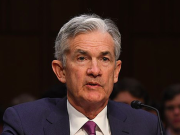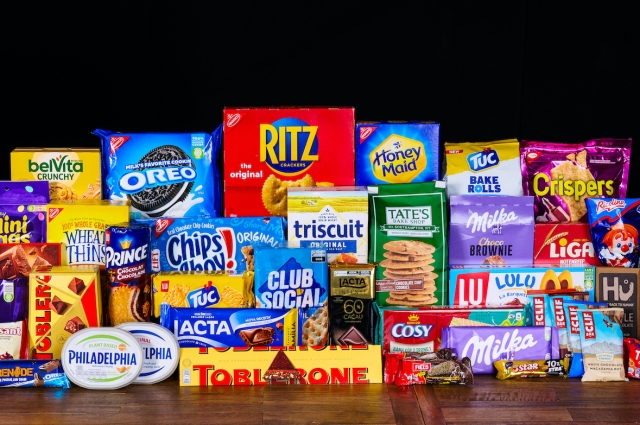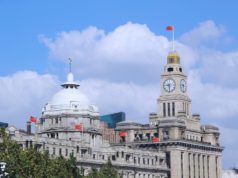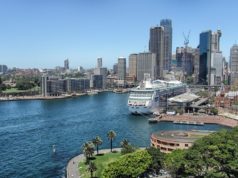$89 Billion World Largest Snacks & Oreo-Maker Mondelez International Fined $364 Million for Rigging European Markets by Hindering Cross-border Trade of Chocolate, Biscuits & Coffee Products Between European Member States
30th May 2024 | Hong Kong
The world’s largest snacks & Oreo-maker Mondelez International has been fined $364 million (€337.5 million) for rigging the European markets by hindering cross-border trade of chocolate, biscuits & coffee products between European member states. Margrethe Vestager, European Union, Executive Vice-President in charge of competition policy: “Prices for food differ between Member States. Trade over borders of Member States in the internal market can lower prices and increase the availability of products for consumers. This is especially important in times of high inflation. In today’s decision, we find that that Mondelēz illegally limited cross-border sales across the EU. Mondelez did so to maintain higher prices for its products to the detriment of consumers. We have therefore fined Mondelēz €337.5 million.” More info below:
“ $89 Billion World Largest Snacks & Oreo-Maker Mondelez Fined $364 Million for Rigging European Markets by Hindering Cross-border Trade of Chocolate, Biscuits & Coffee Products Between European Member States “
$89 Billion World Largest Snacks & Oreo-Maker Mondelez International Fined $364 Million for Rigging European Markets by Hindering Cross-border Trade of Chocolate, Biscuits & Coffee Products Between European Member States

23rd May 2024 – The European Commission has fined Mondelēz International, Inc. (Mondelēz) €337.5 million for hindering the cross-border trade of chocolate, biscuits and coffee products between Member States, in breach of EU competition rules. The Commission remains committed to bringing down unjustified barriers to ensure a better functioning of the Single Market. Territorial supply constraints by suppliers are a type of non-regulatory barriers to a proper functioning of the Single Market.
The infringement – Mondelēz, headquartered in the US, is one of the world’s largest producers of chocolate and biscuit products. Its portfolio includes well-known chocolate and biscuit brands such as Côte d’Or, Milka, Oreo, Ritz, Toblerone and TUC and until 2015 coffee brands such as HAG, Jacobs and Velours Noir. The Commission’s investigation found that Mondelēz breached EU competition rules: (i) by engaging in anticompetitive agreements or concerted practices aimed at restricting cross-border trade of various chocolate, biscuit and coffee products; and (ii) by abusing its dominant position in certain national markets for the sale of chocolate tablets. In particular, the Commission found that Mondelēz engaged in twenty-two anticompetitive agreements or concerted practices, in breach of Article 101 of the Treaty on the Functioning of the European Union (‘TFEU’), by:
- Limiting the territories or customers to which seven wholesale customers (traders/“brokers”) could resell Mondelēz’ products. One agreement also included a provision ordering Mondelēz’ customer to apply higher prices for exports compared to domestic sales. These agreements and concerted practices took place between 2012 and 2019 and covered all EU markets.
- Preventing ten exclusive distributors active in certain Member States from replying to sale requests from customers located in other Member States without prior permission from Mondelēz. These agreements and practices took place between 2006 and 2020 and covered all the EU markets.
The Commission also found that, between 2015 and 2019, Mondelēz abused its dominant position, in breach of Article 102 of the TFEU, by:
- Refusing to supply a broker in Germany to prevent the resale of chocolate tablet products in the territories of Austria, Belgium, Bulgaria and Romania where prices were higher.
- Ceasing the supply of chocolate tablet products in the Netherlands to prevent them from being imported into Belgium, where Mondelēz was selling these products at higher prices.
The Commission concluded that Mondelēz’s illegal practices prevented retailers from being able to freely source products in Member States with lower prices and artificially partitioned the internal market. Mondelēz’ aim was to avoid that cross-border trade would lead to price decreases in countries with higher prices. Such illegal practices allowed Mondelēz to continue charging more for its own products, to the ultimate detriment of consumers in the EU.
Fine – The fine was set on the basis of the Commission’s 2006 Guidelines on fines (see press release and MEMO). In setting the level of the fine, the Commission took into account the gravity and duration of the infringements as well as the value of Mondelēz’ sales relating to the latter. In addition, the Commission took into account the fact that Mondelēz cooperated with the Commission under the cooperation procedure and expressly acknowledged its liability for the infringement of EU competition rules. Therefore, the Commission granted Mondelēz a 15% fine reduction. Based on this methodology, the Commission imposed a €337.5 million fine on Mondelēz.
Background – Traders and retailers try to procure products in the internal market where the prices are lower and trade them to markets where prices are higher. This generally leads to price decreases in countries where prices are higher. Restrictions to such parallel trade can lead to the isolation of a national market whereby the manufacturer or supplier can charge higher prices to the detriment of consumers. They can also lead to less product diversity. Therefore, restrictions to parallel trade amount to non-regulatory barriers to a better functioning of the Single Market and are among the most serious restrictions of competition. In the Transition Pathway for the Retail ecosystem published in March 2024, the Commission proposed to initiate a dialogue between the stakeholders concerned, i.e., international suppliers of branded products, retailers and consumers, to try to find solutions.
As part of its own-initiative investigation of suspected anticompetitive practices covering the EU, in November 2019 the Commission carried out unannounced inspections at the premises of Mondelēz in Austria, Belgium and Germany. The Commission opened formal proceedings in January 2021.
Article 101 of the TFEU prohibits anticompetitive agreements and concerted practices between undertakings that affect trade between Member States and that have as their object or effect the prevention, restriction or distortion of competition within the internal market. Article 102 of the TFEU prohibits the abuse of a dominant position that may affect trade within the EU and prevent or restrict competition. The implementation of these provisions is defined in Regulation No 1/2003.
The cooperation procedure is inspired by the well-established cartel settlements procedure and concerns situations outside cartels where companies are willing to acknowledge their liability for an infringement of the EU competition rules (including the facts and legal qualification). In addition, companies can voluntarily provide or clarify evidence or help in the design and implementation of remedies. The cooperation framework allows the Commission to apply a simpler procedure and the cooperating companies to obtain a reduction in fines. The Commission assesses on a case-by-case basis whether a case would be suitable for cooperation, taking into account the probability of reaching a common understanding with the company within a reasonable timeframe. There is neither a right nor an obligation for companies to pursue the cooperation path.
Fines imposed on companies found in breach of EU antitrust rules are paid into the general EU budget. These proceeds are not earmarked for particular expenses, but Member States’ contributions to the EU budget for the following year are reduced accordingly. The fines therefore help to finance the EU and reduce the burden for taxpayers.
Action for damages – Any person or company affected by anticompetitive behaviour as described in this case may bring the matter before the courts of the Member States and seek damages. The case law of the Court of Justice of the European Union and Council Regulation 1/2003 both confirm that in cases before national courts, a Commission decision that has become final constitutes binding proof that the behaviour took place and was illegal. Even though the Commission has fined the cartel participants concerned, damages may be awarded by national courts without being reduced on account of the Commission fine. The Antitrust Damages Directive makes it easier for victims of anticompetitive practices to obtain damages. More information on antitrust damages actions, including a practical guide on how to quantify antitrust harm, is available here.
Whistleblower tool – The Commission has set up by a tool to make it easier for individuals to alert it about anticompetitive behaviour while maintaining their anonymity. The tool protects whistleblowers’ anonymity through a specifically designed encrypted messaging system that allows two-way communications. The tool is accessible via this link.
For More Information – More information on today’s decision will be available on the Commission’s competition website in the public case register under the case number AT.40632 once any confidentiality issues have been resolved.
About Mondelēz International
Mondelēz International, Inc. (Nasdaq: MDLZ) empowers people to snack right in over 150 countries around the world. With 2023 net revenues of approximately $36 billion, MDLZ is leading the future of snacking with iconic global and local brands such as Oreo, Ritz, LU, Clif Bar and Tate’s Bake Shop biscuits and baked snacks, as well as Cadbury Dairy Milk, Milka and Toblerone chocolate. Mondelēz International is a proud member of the Standard and Poor’s 500, Nasdaq 100 and Dow Jones Sustainability Index.
Sign Up / Register
Caproasia Users
- Manage $20 million to $3 billion of assets
- Invest $3 million to $300 million
- Advise institutions, billionaires, UHNWs & HNWs
Caproasia Platforms | 11,000 Investors & Advisors
- Caproasia.com
- Caproasia Access
- Caproasia Events
- The Financial Centre | Find Services
- Membership
- Family Office Circle
- Professional Investor Circle
- Investor Relations Network
Monthly Roundtable & Networking
Family Office Programs
The 2025 Investment Day
- March - Hong Kong
- March - Singapore
- July - Hong Kong
- July - Singapore
- Sept- Hong Kong
- Sept - Singapore
- Oct- Hong Kong
- Nov - Singapore
- Visit: The Investment Day | Register: Click here
Caproasia Summits
- The Institutional Investor Summit
- The Investment / Alternatives Summit
- The Private Wealth Summit
- The Family Office Summit
- The CEO & Entrepreneur Summit
- The Capital Markets Summit
- The ESG / Sustainable Investment Summit

































